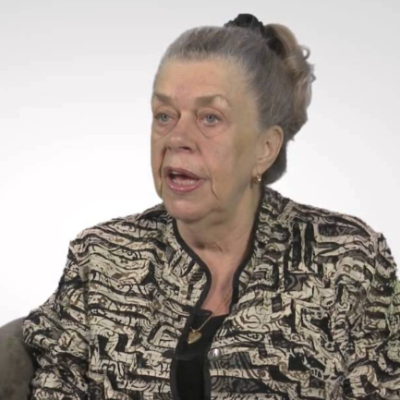Back at Carnegie Hall for the second evening of their annual two-night residency, the Boston Symphony Orchestra presented a concert performance of Dmitri Shostakovich’s Lady Macbeth of Mtsensk, one of his most innovative and celebrated works. Based on a well-known 1865 novella by Nikolai Lesko, with a libretto by the composer and Aleksander Preis, the story centers on Katerina Izmailova, a bored and unhappy merchant’s wife who, in the space of four acts, takes a lover, poisons her father-in-law, murders her husband, gets arrested and is sent to prison in Siberia, where, on the way, she drowns both herself and a convicted prostitute in an icy river. The violent, frequently frenzied score – brimful of brassy dissonant sounds, sharp contrasts and elements of the grotesque along with tenderly lilting arias – is a perfect reflection of Shostakovich’s eclectic early style.
Premiered in Leningrad in 1934 and arriving at New York’s Metropolitan Opera in 1935, the gruesome work enjoyed immense popularity until Joseph Stalin walked out of a 1936 performance. Two days later an unsigned Pravda review, “Muddle Instead of Music”, led to the oeuvre’s disappearance from the Soviet stage, and the composer suddenly found his life and career in jeopardy. Though a revised, toned-down version appeared in 1963, the opera wasn’t fully resurrected until 1979, when Mstislav Rostropovich directed the London Philharmonic in a recording of the original version with his wife, Galina Vishnevskaya in the title role. Today that devastatingly beautiful score is the one most often performed today.
The opus requires an enormous ensemble and Carnegie Hall’s stage barely accommodated the personnel involved in this performance: an orchestra of 100 plus (augmented by additional players), a 110-member chorus, and 19 vocal soloists. In addition to the throng squeezed together on stage there was a 14-member off-stage band, eight in the hall’s seating area, another six out of sight in the wings. Music Director Andris Nelsons kept everything on track, eliciting the very best from the huge musical forces. Embracing the music’s idiosyncracies and dynamic extremes, he shaped a thrilling performance, one that brought out all the passion, savagery and dark sardonic humor in Shostakovich’s masterly score. The orchestra reveled in the instrumental interludes, especially the mirroring of Katerina and Sergei’s lurid and frenetic lovemaking, the passacaglia depicting Katerina’s transition from innocence to crime, and the frantic music accompanying the Tattered Peasant’s race to the police station.
Most memorable among the many fine individual orchestral contributions were the graceful and expressive solos dispatched by guest concertmaster Nathan Cole’s violin, Blaise Déjardin’s cello, Elizabeth Rowe’s flute, John Ferrillo’s oboe, Robert Sheena’s English horn, and William R Hudgins’s clarinet.
The four principal roles were uniformly well cast. As the mercurial Katerina, Kristine Opolais created a dramatically convincing portrait of a provincial housewife driven by loneliness and boredom into a fatal affair with a servant. Her voice, significantly more lyrical than other sopranos who have more recently taken on this role, conveyed a pitiful vulnerability, her characterization suggesting she was more a victim of circumstances than a deliberately brutal and conniving murderer. Brenden Gunnell molded a delightfully comic portray of Sergei, the callow, self-centered, skirt-chasing servant who leads the tragic heroine astray. His hefty heldentenor was most effective in his early scenes with Katerina and in his later duets with Maria Barakova as Sonyetka, the young convict killed by Katerina.
As Katerina’s spineless husband Zinovy, Peter Hoare was appropriately unassertive, though his bright and elegant tenor managed to endow the otherwise contemptible character with some dignity. And Günther Groissböck, mostly repulsive and sinister as Boris, Katerina’s lecherous father-in-law, used his rich and vigorous bass – powerful but never rough – to uncommonly moving effect in the Act 2 courtyard scene where he reminisces about his youthful romantic conquests.
The numerous smaller parts were all well-acted and sung, often with great finesse, notably by tenor Alexander Kravets as a drunken and staggering Tattered Peasant, bass Anatoli Sivko as a crude and comically corrupt Police Chief, and bass Goran Jurić as a cheerfully hypocritical Priest. Mezzo-soprano Maria Barakova was silken-voiced and suitably sexy as the prostitute Sonyetka, and Patrick Guetti, with his towering physique and booming but beautiful bass, made an outsized impression in the very small role of the Officer and Sentry. The Tanglewood Festival Chorus made the most of their muscular moments in the score, especially their haunting account of the prisoners’ chorus.
With so little space on the crowded stage, this concert performance made little effort to stage the opera as music theater. But Shostakovich’s music delivered an abundance of drama, with Nelsons and the orchestra emerging as the night’s biggest stars.
This review was updated to correct an inaccuracy in the plot description.




